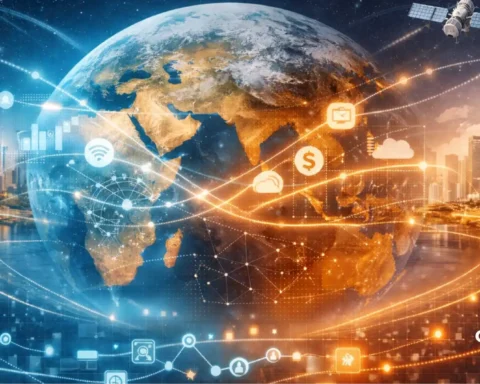The UP government announced a digital media policy that intends to popularise the initiatives, projects, and achievements made in the state under its rule through social media influencers. This would include incentives for the influencers to create and share pro-government content on X, Facebook, Instagram, and YouTube. However, opposition parties and independent digital content creators oppose the move.

According to a press release issued by Sanjay Prasad, Principal Secretary of the Information Department, the policy aims to increase the visibility of various government schemes and achievements through digital media and provides employment opportunities to citizens.
The government has put payment limits depending on the number of followers or subscribers an influencer has on their platform. For instance, on X, Facebook and Instagram, it can go up to ₹5 lakh a month depending on the reach, while YouTube is paying as high as ₹8 lakh for videos, shorts and podcasts. This will also give the government powers to drag any paid content which is considered anti-national, antisocial, or derogatory to the court of law. The feature of this policy has raised several eyebrows over the possibilities of censorship and suppression of independent voices on social media.
YOU MIGHT BE INTERESTED IN: Influencers: Moulding the Social Media Sphere
Opposition parties were not behind the curtains either and rose in quick time to condemn the move. Ameeque Jamei, the SP spokesperson, attacked the policy for trying to muzzle dissent and manage the narrative on social media. “We are against any form of censorship on social media. What has been done is bidding for the independent voices and threatening them if they don’t fall in line, but no influencer can save this government, which is bound to go,” said Jamei. He further claimed that the government was using the policy to extend employment opportunities to people affiliated with the ruling Bharatiya Janata Party.
The Congress party also reacted: “The policy reflected the nervousness of the government regarding digital literacy, which is on the rise.” “While the use of social media is increasing in this era, the move is an attempt to stifle criticism. A lot of independent digital platforms brought the truth of the BJP government in front of the people during the last five years, defeating the fake narrative created by the ruling party since 2014. It is a ploy to keep them silent through such measures,” Yadav said.
Independent digital influencers also protested.
Santosh Singh of the digital platform Times of Swaraj said the government is ploying the policy to purchase public opinion with monetary gains. “With the rise of social media, the government faces stiff criticism over various issues. It wants now to create a favourable environment for itself and, in a way, through its money power, wants influencers to work as cheerleaders,” Singh said.

While debates are still going on about the policy, how this initiative would influence Uttar Pradesh in the digital scenario, particularly in the coming state elections, remains a question. Some critics say the policy will further erode free speech and independent journalism in the digital world, while supporters insist it will help promote the government’s work and provide much-needed employment opportunities.









